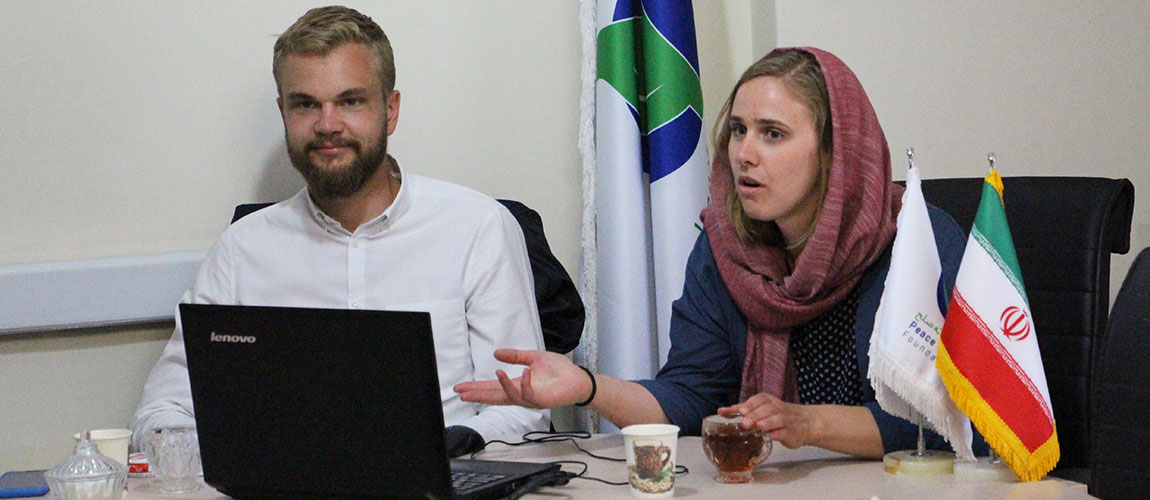Ms. Mageli and Mr. Inderhaug have been in Tehran since six months ago. Mr. Inderhaug started the presentation with a general introduction on Norway. According to him, Norway is bordered by Finland, Russia and Sweden; “the capital of Norway is Oslo and language of Norwegian people are Norwegian and Saami languages, however, they speak English too.”.
He then moved on to the government of Norway which is a parliamentary democracy and constitutional monarchy. Ms. Mageli pointed that “Norway is a constitutional monarchy and our king has a mainly symbolic power. Norwegian Constitution Day is actually the national day of Norway and is an official public holiday observed on May 17 each year celebrated by children parades through the city.”

In terms of Norway export to other countries, Mr. Inderhaug said “oil and gas is our most important export product to other countries. Norway is also the world’s second largest seafood exporter.”
Going through some details about Norway climate and weather which is somehow an exception among other countries, he said “because of Norway’s high latitude, there are large seasonal variations in daylight. From late May to late July, the sun never completely descends in the northern part of the country, and the rest of the country experiences up to 20 hours of daylight per day. Conversely, from late November to late January, the sun never rises above the horizon in the north, and daylight hours are very short in the rest of the country.”
In terms of religion of Norwegian people, Mr. Inderhaug noted “nowadays, most of the Norwegian people do not belong to any religion, but many people still have a connection to Christianity and protestant traditions. In the past, we had our own religion, which was based upon northern mythology.” He underlined that “Norwegian values are rooted in egalitarian ideals and Norway is a progressive welfare state; openness, equality and equal rights are important values.”

In the last part of the presentation, Ms. Mageli explained about the Norway peacebuilding activities and its’ peace NGOs; “support for affected countries during and after conflicts has become an important part of Norway’s foreign and development policy. Norway has been engaged in a number of peace and reconciliation processes as facilitator and as a supporter of the UN and other actors since the early 1990s.”

